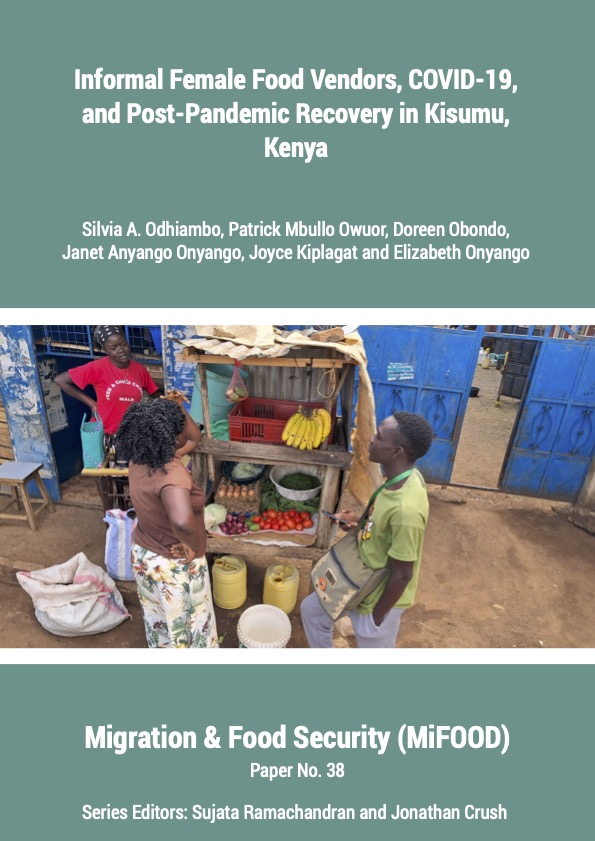While there is substantial literature on the effects of COVID-19 on formal businesses, limited evidence exists on the impacts of the pandemic on informal female-owned enterprises. Additionally, no studies have explored the role of post-pandemic recovery strategies in meeting the unique challenges experienced by the informal food vendors in secondary cities in the Global South. In this paper, we explore the impacts of COVID-19 and the post-pandemic recovery strategies on female informal food vendors in Kisumu, the third largest city in the western region of Kenya. The study adopted qualitative methods – in-depth and key informant interviews and focus group discussions with women and male food vendors and government and non-government officials to gain a deeper understanding of the impacts of COVID-19 and subsequent recovery strategies. Data analysis reveals that COVID-19 pandemic significantly disrupted the livelihoods of informal female food vendors, leading to reduced sales, income loss, and widespread food insecurity. Participants identified community and family networks as critical financial and social support resources during and after the pandemic. The informal vendors adopted various coping strategies, such as altering their business operations, relying on informal credit networks, and maintaining hygiene practices
to retain customers. Participants noted that recovery has been uneven and hindered by inflation, rising transportation costs, and political instability. Additionally, structural changes, including reduced fuel prices, improved agricultural investment, and access to emergency loans, to foster resilience and safeguard against future crises were highlighted as key strategies that could benefit women in informal food businesses in times of emergency. The pandemic-related adverse socioeconomic consequences experienced by these vendors underscore the critical need for targeted policies to support informal economies during crises.
April 6, 2025

